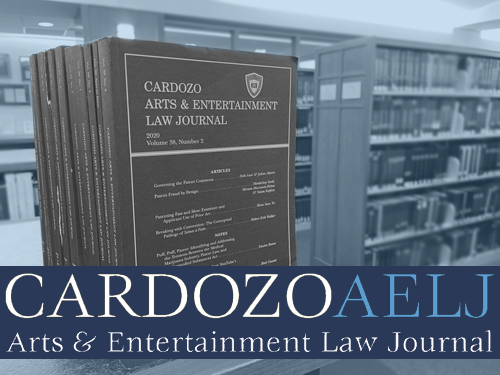Document Type
Article
Publication Date
10-25-2012
Abstract
Some academics have raised concerns that copyright law might be in conflict with First Amendment free speech law. Some scholars fear that copyright law might restrict the free flow of information in the marketplace of ideas. The typical answer to such concerns, embodied in the Supreme Court cases Harper & Row Publishers Inc. v. Nation Enterprises and Eldred v. Ashcroft, is that copyright law contains internal doctrinal mechanisms, namely the idea-expression dichotomy and fair use, which alleviate free speech concerns. Copyright law protects only expressions, not ideas or facts; so where free speech might encourage an idea or fact to be widely disseminated, copyright law would restrict it. The idea-expression dichotomy holds that ideas and facts are not within the subject matter of copyright protection. Therefore, the media is free to report on facts and spread ideas, so long as they do so using expressions alternative to those protected by copyright.
This post was originally published on the Cardozo Arts & Entertainment Law Journal website on October 25, 2012. The original post can be accessed via the Archived Link button above.
Recommended Citation
Hasan, Russell, "Copyright’s Merger Doctrine as a Solution to Conflicts Between Copyright Law and Freedom of Speech" (2012). Cardozo Arts & Entertainment Law Journal (AELJ) Blog. 11.
https://larc.cardozo.yu.edu/aelj-blog/11



